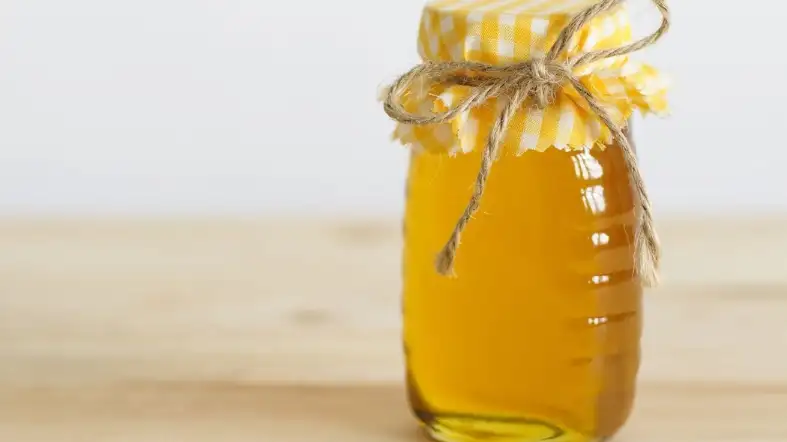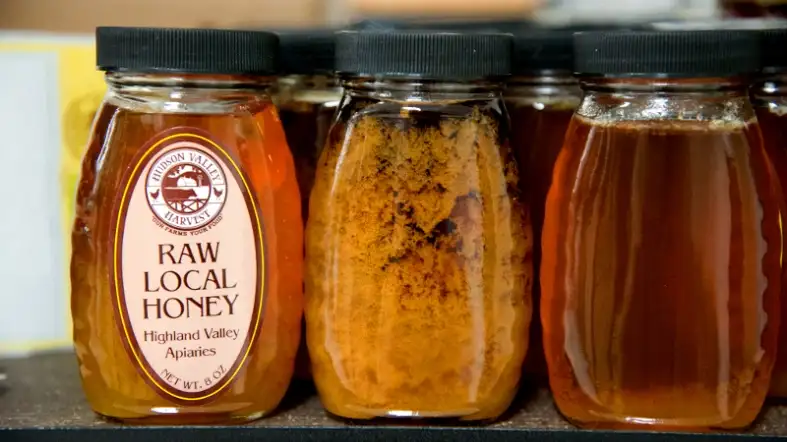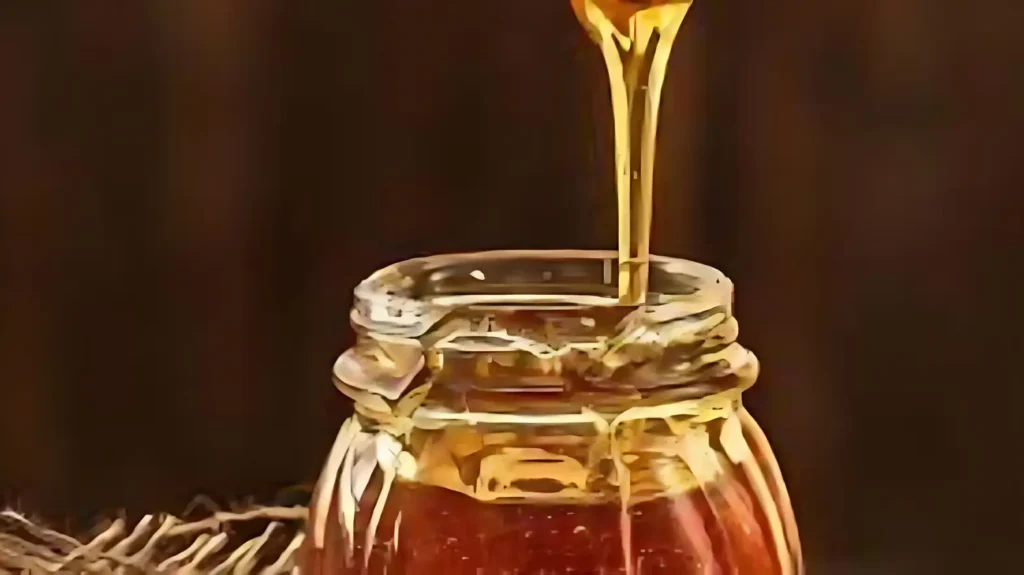For those who adore honey, it’s likely that the question of how long this multifaceted and delectable natural sweetener can be kept in the pantry has crossed their minds.
It’s crucial to understand when it’s necessary to replenish the supply of honey, whether it is frequently used or simply reserved for sporadic occasions.
In this piece, we will delve into the shelf life of honey and the various influences that can affect its freshness, in order to savor this delightful delicacy for the longest possible duration.
How long does honey last in the pantry?
Honey can last indefinitely in the pantry if stored properly in a sealed container at room temperature. However, it may crystallize over time, which is normal and can be fixed by gently warming the honey in a warm water bath.

Factors That Impact Honey’s Lifespan
Nevertheless, shelf life might vary depending on factors such as honey type and whether it is sealed or unopened:
Unopened honey
Unopened honey can last indefinitely if stored in a cool, dry place away from direct sunlight.
However, some experts suggest that it’s best to consume it within two years of purchase to ensure freshness.
Opened honey
Upon the breach of a honey container’s seal, it is recommended to secure the contents within an airtight receptacle in a dry and cool environment and to avoid direct exposure to sunlight.
As time progresses, it may solidify, but it is still safe for consumption. To re-liquefy crystallized honey, place the container in a warm water bath until it reverts back to its liquid form.
Depending on the manner of storage and the category of honey, opened honey can remain fresh for at least a year or more.
Different Types Of Honey
The duration of storage for various kinds of honey is subject to variability, contingent on the levels of moisture, acidity, and antioxidant properties that are present.
As a general rule, honey that is darker in hue, like buckwheat honey and manuka honey, possesses an extended shelf life in comparison to their lighter counterparts, such as clover honey.
Factors That Affect Honey Shelf Life

Honey type
The type of honey can significantly affect its shelf life. Some honey, such as clover honey produced by domestic honeybees, are more commercially desirable due to their flavor and color
However, certain types of honey, such as manuka honey, have higher antibacterial properties and may last longer.
Storage method
The way honey is stored can also affect its shelf life. Honey should be stored in a tightly sealed container to prevent exposure to air, moisture, and contaminants.
Additionally, honey should be stored away from other strong-smelling foods, as honey can easily absorb odors.
Temperature
Temperature is another critical factor that can affect the shelf life of honey.
Honey should be stored in a cool, dry place away from direct sunlight, with temperatures below 15°C, to prevent the growth of microorganisms and crystallization.
Exposure to air and light
Exposure to air and light can also affect the quality of honey. Honey should be stored in an opaque container to protect it from light.
Exposure to air can also cause honey to crystallize or ferment, affecting its taste and texture.
How to store honey in a pantry to extend its shelf life?
Here is how to store honey in a pantry to extend its shelf life:
Choosing the right container:
When storing honey, it is important to choose the right container. Glass jars with tight-fitting lids or plastic containers with airtight seals are good choices.
Avoid using metal containers, as they can react with the honey and affect its flavor and quality.
Finding the right storage spot:
Honey should be stored in a cool, dry place away from direct sunlight. A pantry or cabinet is a good choice.
Avoid storing honey near sources of heat or in areas with high humidity.
Keeping honey away from moisture:
Honey can absorb moisture from the air, which can lead to fermentation and spoilage.
To prevent this, make sure the container is tightly sealed and keep it in a dry place.
Avoiding cross-contamination:
Honey is naturally antibacterial, but it can still be contaminated if it comes into contact with other foods or substances.
To avoid this, store honey away from other foods and make sure the container and utensils used to handle the honey are clean and dry.
Signs That Honey Has Gone Bad

Here are some signs that honey has gone bad:
Color changes:
Honey can darken or crystallize over time, which is normal. However, if the honey has turned a dark brown or black color, it may have gone bad.
Texture changes:
Honey should be smooth and creamy, but if it becomes grainy or has a sandy texture, it may be past its prime.
Unpleasant smell or taste:
Honey should have a sweet, floral aroma and a mild, pleasant taste. If it smells or tastes sour, fermented, or off, it may have spoiled.
Presence of mold:
Mold can grow on honey if it has been contaminated with moisture or other substances. If you see mold on your honey, it should be discarded.
Can you still consume honey after it has expired?
Honey does not have an expiration date, but it may become less effective over time.
Honey has natural antimicrobial properties that can prevent bacteria growth, but they may weaken over time.
Risks of consuming expired honey
Consuming expired honey does not pose a significant health risk but may not offer the same nutritional benefits or taste as fresh honey.
Expired honey may also contain yeast or other microorganisms that could cause fermentation, resulting in a sour taste.
How to check if honey is still safe to consume
To check if honey is still safe to consume, look for signs of spoilage such as mold, bubbling, or fermentation. If the honey smells sour or has an off taste, it is best to discard it.
FAQs
How Long Can Honey Last In The Pantry?
Honey can last indefinitely in the pantry, provided it is stored in an airtight container away from moisture and heat.
Does Honey Expire?
Honey does not expire, but it may crystallize over time.
If this happens, you can still consume it by heating it up in a warm water bath.
Can Honey Go Bad?
Honey is not prone to spoilage as it has natural antimicrobial properties that prevent the growth of bacteria and fungi.
How Do I Know If My Honey Has Gone Bad?
If your honey has an off smell, a cloudy appearance, or is fermenting, it may have gone bad and should be discarded.
Should I Refrigerate My Honey?
Honey does not need to be refrigerated, and doing so can cause it to crystallize more quickly.
Can I Still Eat Crystallized Honey?
Yes, crystallized honey is safe to eat and can be easily liquefied by heating it up in a warm water bath.
Can I Use Honey After The “Best By” Date?
Yes, you can use honey after the “best by” date as it is a non-perishable food item that does not spoil. However, the quality and flavor may deteriorate over time.
Conclusion
Honey is a delectable and wholesome natural sweetener that has been utilized for centuries due to its healthful attributes.
One can relish the comprehensive advantages of this extraordinary food by comprehending the various kinds of honey and implementing appropriate storage procedures.
It is advisable to consume honey in measured quantities, within the context of a balanced diet, and to seek guidance from a healthcare expert prior to employing honey as a medicinal treatment.
Remember to always choose high-quality, pure honey from reputable sources, and to check the label for any added ingredients.

